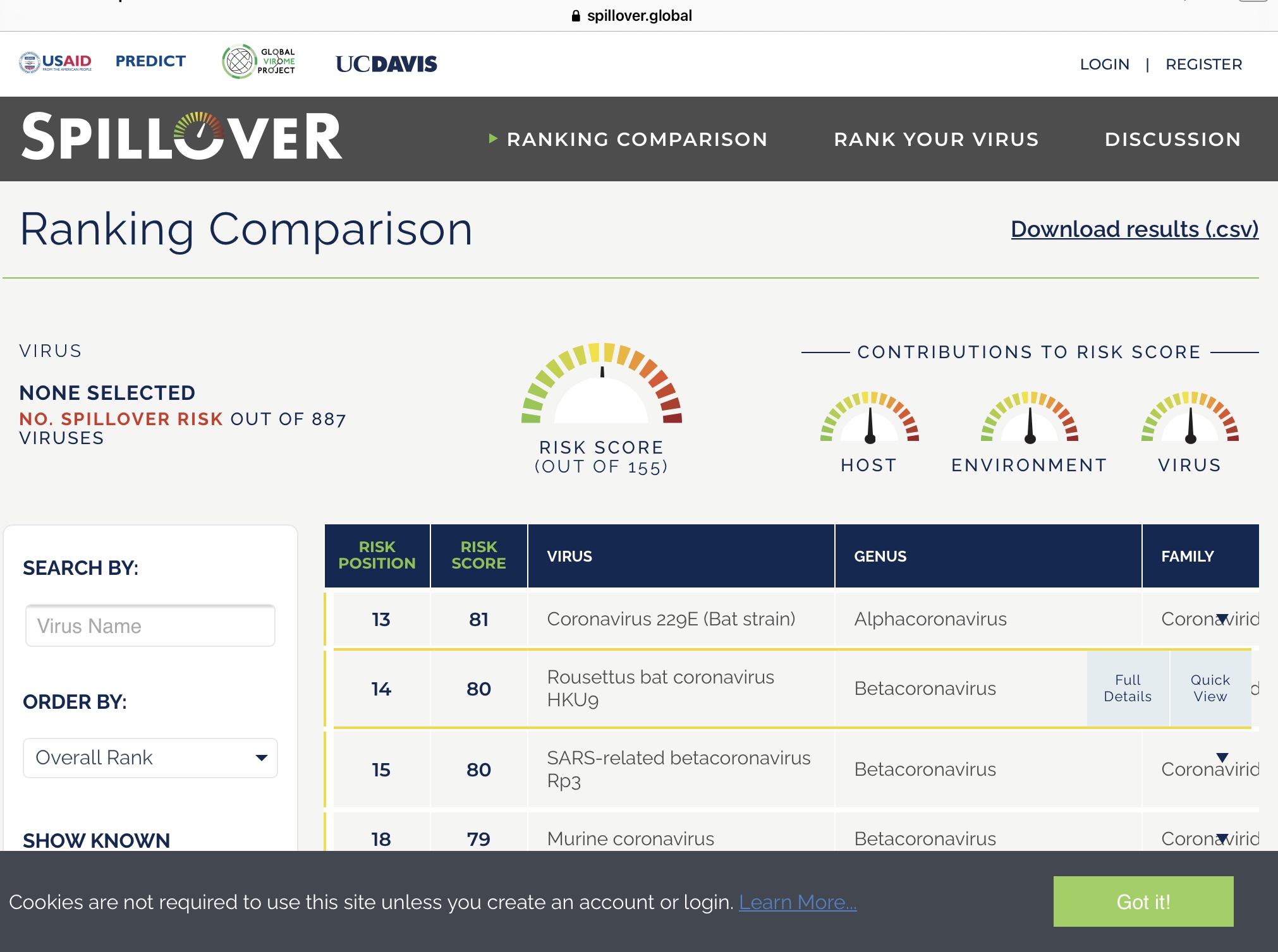Today, a new internet-based tool was launched to monitor and predict virus outbreaks. It is called SpillOver.
The One Health Institute at UC Davis, together with its partners, launched the new internet-tool. More, it is open-source for researchers to report virus detection. In fact, it can predict outbreaks.
UC Davis reports, SpillOver is the first open-source risk assessment tool that evaluates wildlife viruses to estimate their zoonotic spillover and pandemic potential. It effectively creates a watchlist of newly discovered viruses to help policymakers and health scientists. And they can prioritize them for further characterization, surveillance, and risk-reducing interventions.
They report how the tool is already tracking and modeling to predict the virus that causes COVID-19, too.
IC Davis also reported, “This tool is intended to start a global conversation that will allow us to go far beyond how we thought about ranking viruses in the past and allow real-time scientific collaboration to identify new threats early,” said corresponding author Jonna Mazet, a professor at the UC Davis School of Veterinary Medicine, founding director of the One Health Institute and former global director of PREDICT. “SpillOver can help advance our understanding of viral health threats and enable us to act to reduce the risk of spillover before pandemics can catch fire”.
VACCINES ARE KEY
COVID-19 is a vaccine-preventable disease. More, adults in the United States can now get a free vaccine regardless of their immigration or health insurance status.
Moreover, they are safe and effective. Also, while some “breakthrough cases” do occur, vaccines substantially curb the symptoms.
Additionally, here are our key health messages on vaccines:
Vaccines Protect the Person Receiving it
Vaccines help to protect us from the virus.
Vaccine Protect Others, too
More, they protect others, also. And it is important to remember that some cannot receive it, including children. In fact, you can have it but show no symptoms.
Please get the shot and encourage others, too.
Previous Infection will not Protect you
If you previously had the virus, you still would need the shot. And here is why.
First, it is unclear how long immunity lasts. We wrote a number of articles documenting reinfection. And that is because there are new strains. More, viruses mutate over time. Thus, the strains currently being spread are different from the strains from last year.
So even if you had it, you can get it again.
Second, it protects others. Early evidence shows vaccinated individuals are less likely to spread the virus to others. And remember, not everyone is eligible to receive it.
How to get Vaccinated
There are several options, and the shot is available in many stores and clinics. Here are some methods:
SCHEDULE BY PHONE
Call 800-232-0233 to schedule anywhere in the U.S.
SCHEDULE ONLINE
Visit Vaccine.gov to schedule anywhere in the U.S.
SEND A TEXT MESSAGE
Text message your zip code to 438829 to schedule anywhere in the U.S.

